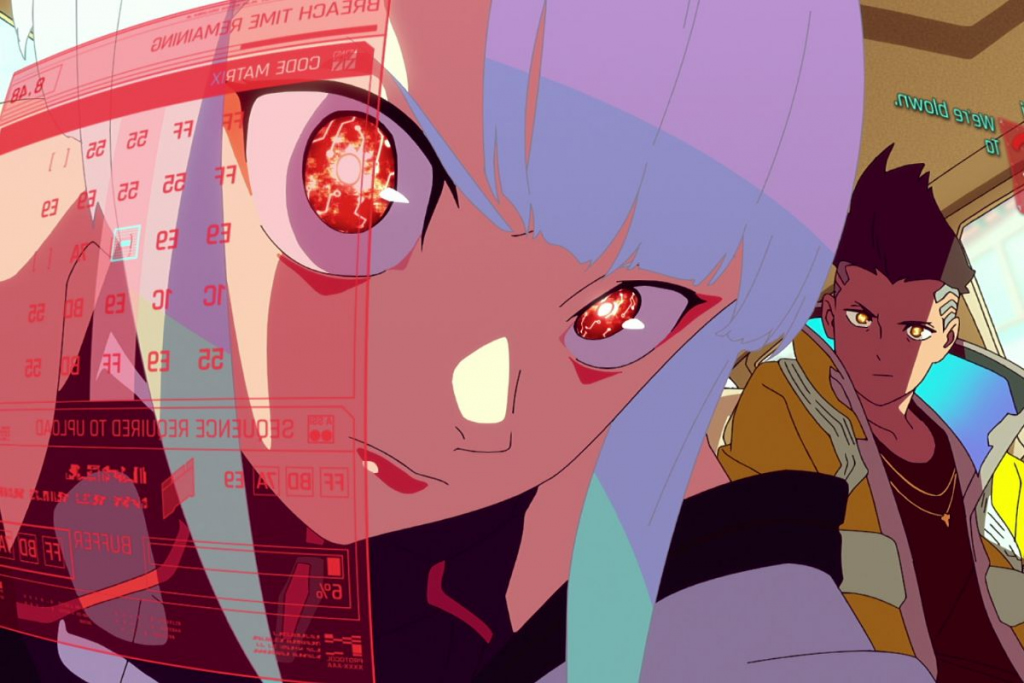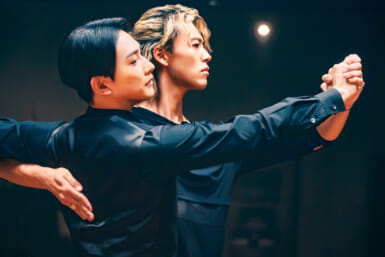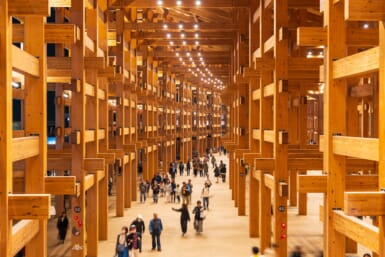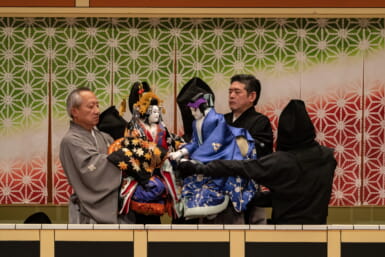It’s 2022 and most humans on the internet would have at least heard of the term ‘cyberpunk.’ Originally, it referred to a 1960s subgenre of science-fiction novels depicting a dystopian near future where cool technology is marred by human suffering and hedonistic pursuits. In Japan, the cyberpunk genre really took off in the 1990s with manga such as Katsuhiro Otomo’s Akira and prominent Japanese role-playing games (RPG) such as Final Fantasy VII.
Cyberpunk today seems to diverge in two subgenres: the Instagrammable aesthetic of the backstreets of Shinjuku, graded in dark grittiness juxtaposed against high saturation neon signs; and that pioneered by Cyberpunk 2020, first a table-top roleplaying game, later a controversial action RPG, Cyberpunk 2077, released in December 2020. Now in its latest iteration, we have Cyberpunk: Edgerunners, an animated series set in the very same, problematic world of Night City.
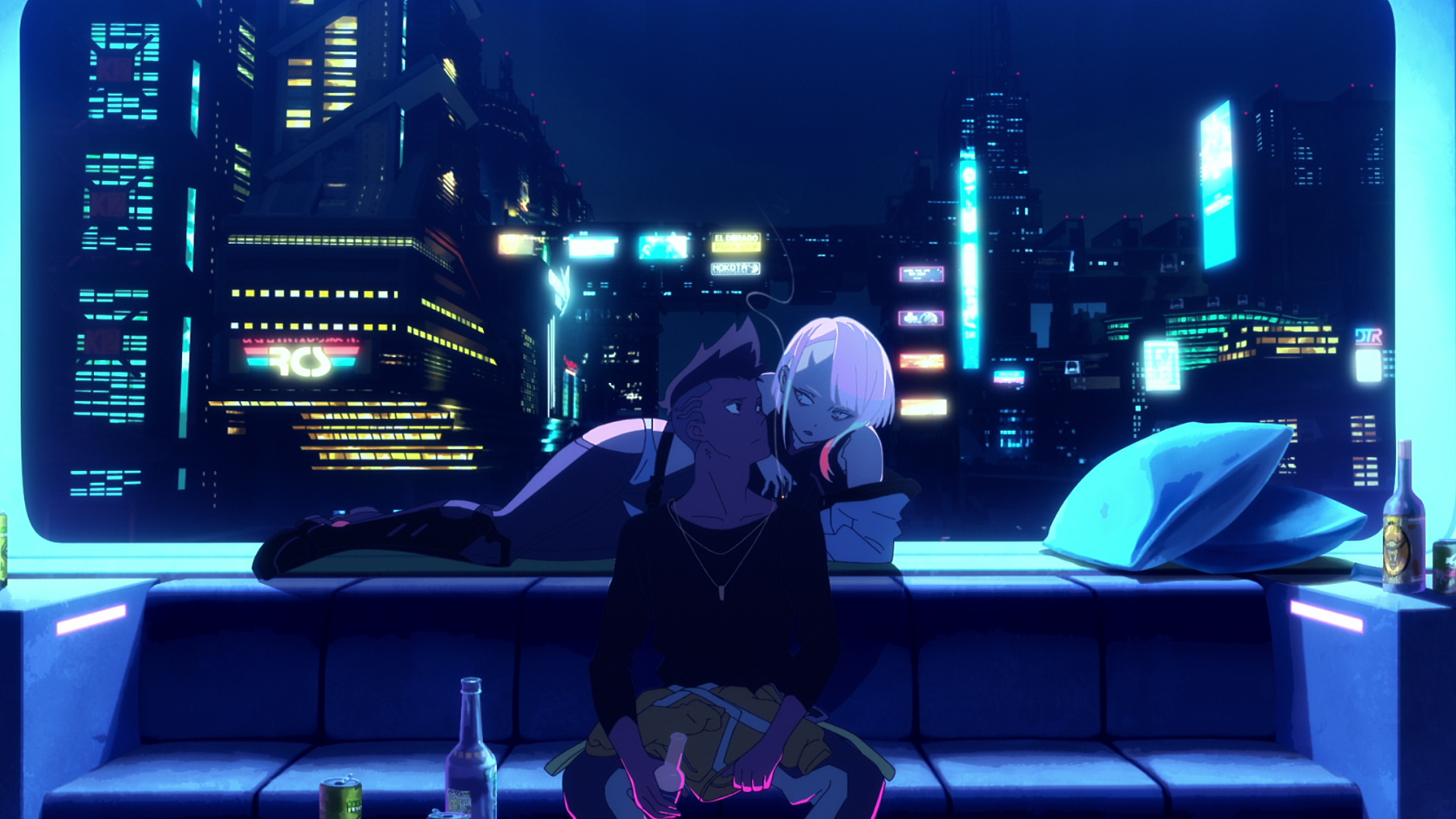
Following the disastrous bug-riddled release of Cyberpunk 2077, it would be understandable if even the most ardent fans of futurism approached Cyberpunk: Edgerunners with a dose of cynicism. But developer CD Projekt Red still holds some street cred in the space, and when coupled with the involvement of famed Japanese animation studio, Studio Trigger (Kill la Kill, Darling in the Franxx), it certainly attracted attention.
Night City is overrun by corruption, crime is rife and death comes easy with no time to mourn. Marginalized protagonist David Martinez’s losses in life are an example of how capitalist powers have failed people like him. With nothing left to lose, he turns to a life of crime, getting involved with edgerunners, black market mercenaries who use cybernetic implants and high-tech weaponry for the benefit of anyone willing to pay.
The themes in Cyberpunk: Edgerunners are as macro as they are micro. Night City is a commentary on a broken society that only rewards the privileged as the majority remain trapped in a cycle of poverty. In the fictitious city, braindance addiction is common among the poor, as they have chip recordings that allow users to relive luxurious experiences that would otherwise be out of their reach. But the story is also a personal one that shines on youth problems such as the dichotomy of wanting to fit in while also wanting to stand out and feel special.
The protagonist is a brilliant straight-A student but is bullied for being different. This ostracizes him and robs him of the bright future that his single mother had hoped for by sending him to the prestigious Arasaka Academy. These themes and storylines are not revolutionary, but the smooth pacing and plot development keep viewers interested. The uncanny parallels to our real world are enough to make one question the status quo.
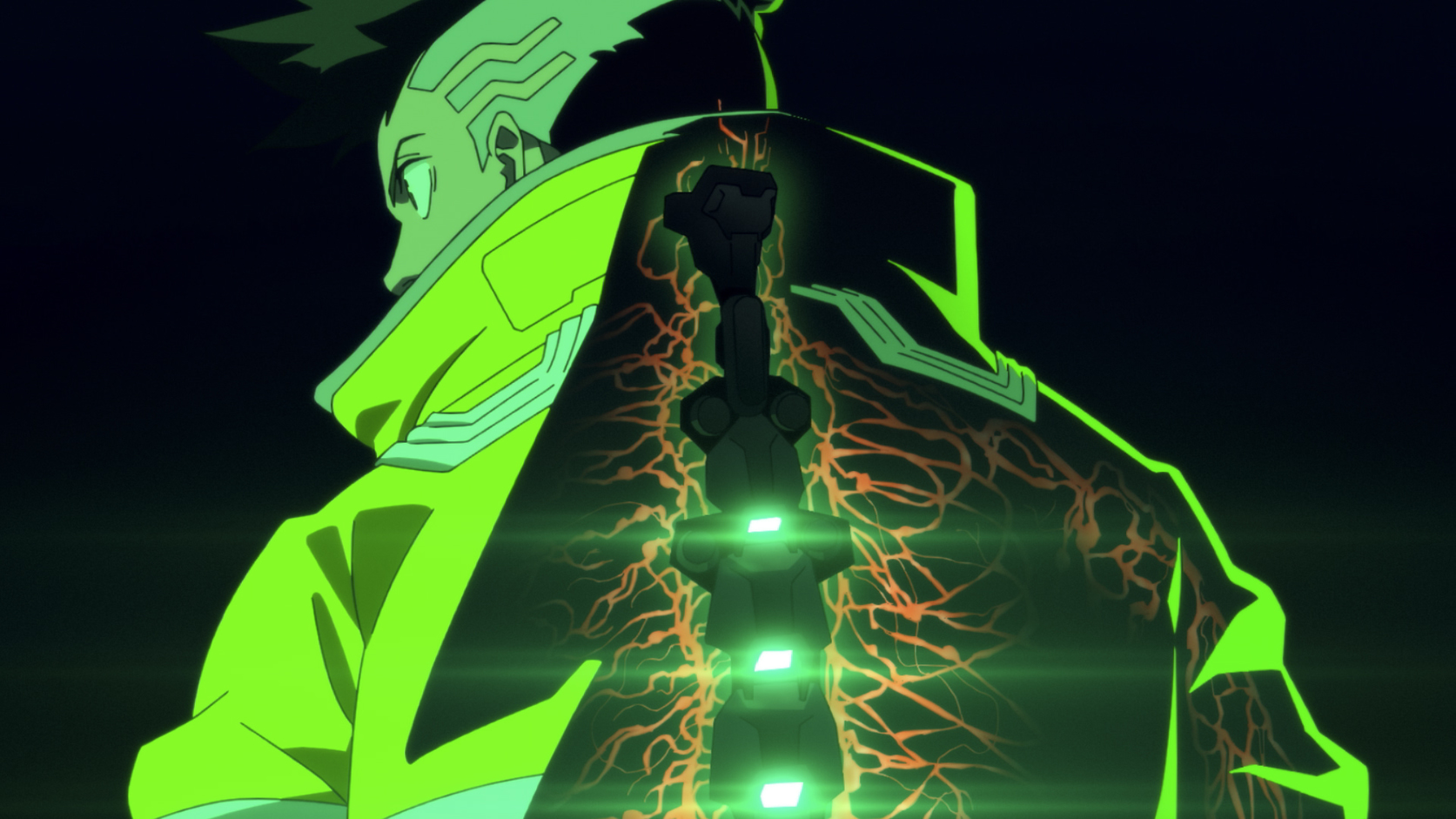
Despite past cyberpunk novels, television series and films depicting gloomy and derelict landscapes, Cyberpunk: Edgerunners is anything but. Each character and view of Night City bursts with color. Fight scenes are exciting and fluid. While there also is a decent amount of gore that can be hard to stomach, it’s often over before the viewer has even had time to process it.
Voice acting is top notch with heavy hitters such as Zach Aguilar (Tanjiro in Demon Slayer, Aether in Genshin Impact) and Aoi Yuuki (Rita Rossweisse in Honkai Impact 3rd) making up part of the English and Japanese roster. The music choices allow room for an eclectic collection of grunge, rock, pop, techno and reggae to complement the scenes without distracting from the story. Each episode is named after a song, a nod at Cyberpunk 2077’s tendency to name quests in a similar fashion.
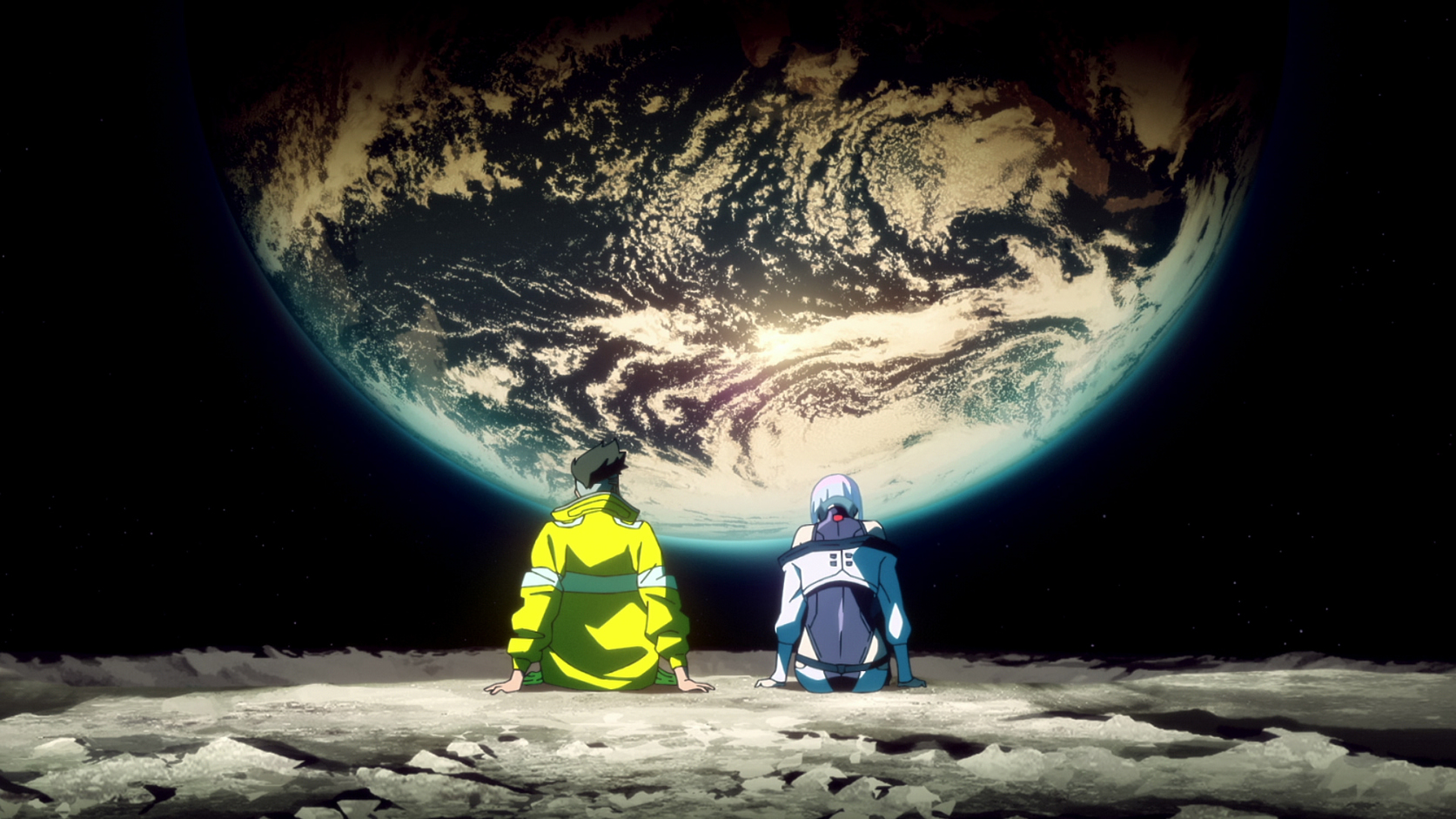
With the sheer number of cyberpunk content being churned out, Cyberpunk: Edgerunners seemed like the last thing the masses would want to flock to. But by keeping the core of it an inherently human story and filling the show with characters that are relatable and loveable, the series has managed to pull away from tacky edginess while staying true to the original subgenre. After ripping away the chips, chrome and augmentations, we are able to discover that fundamentally, we are all simply people with dreams.
Photos courtesy of Netflix
Updated On September 29, 2022

